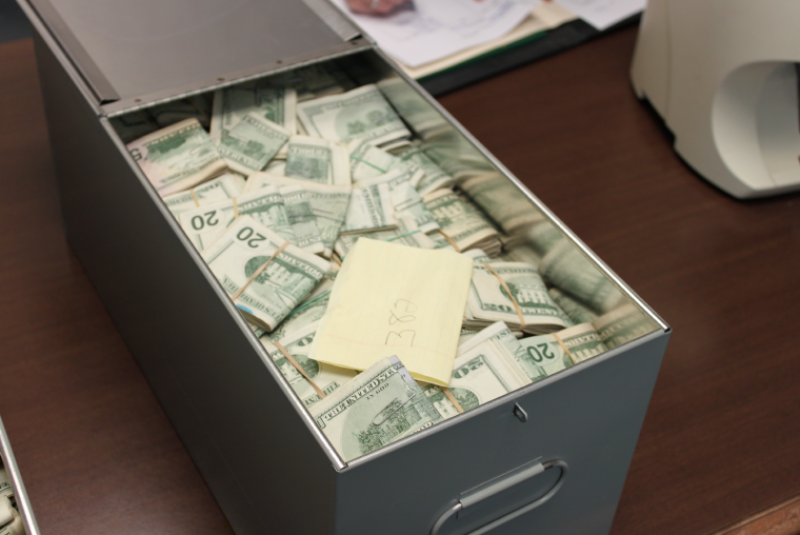George reacts to seizures, forfeiture process continues
John George Jr.’s defense team have filed a memo with U.S. District Court, expressing opposition to the recent seizure of George’s assets and requesting that further forfeiture issues be put on hold while the appeal process is pending.
U.S. Marshals had seized about $1 million from safe deposit boxes controlled by George in late December. In early January, U.S. Attorney’s Office, the U.S. Marshals Service and the Internal Revenue Service, uncovered more cash as well as Rolex watches and jewelry in a second seizure. Taken together, there was more than $2 million in money and valuables.
In late December, not long after the first seizure, federal prosecutors filed a motion with the U.S. District Court in Boston requesting that the uncovered cash be used toward the money George owes in restitution to SRTA.
George’s defense team filed a memo with the court on Jan. 21 in reaction to the seizures.
“John George asks that the seizure warrants be vacated so George’s family can operate the farm and ice cream shop on the farm’s land and that this court stay all further proceedings on the forfeiture judgment pending a decision from the First Circuit Court of Appeals,” William J. Cintolo, George’s lawyer, wrote in the memo.
The memo also mentions the severity of the sentencing. The court previously ruled that George received more than $1.38 million in management fees between 2006 and 2011, which he would not have received “had he not concealed his fraudulent conduct from SRTA,” thus that amount was owed to the federal government.
“George submits that the criminal forfeiture in the instant case is excessive,” Cintolo wrote in the memo. “A criminal forfeiture is unconstitutional under the Excessive Fines Clause if it is ‘grossly disproportional to the gravity of the defendant's offense.’ The Supreme Court has made it clear that the notion that a forfeiture should not be so great as to deprive a wrongdoer of his or her livelihood is deeply rooted in the history of the Eighth Amendment.”
United State District Judge Denise Casper countered the memo by filing an order of forfeiture on Jan. 22, noting that an order of forfeiture had been filed back in September.
“…The United States Marshals Service is hereby authorized to seize the properties, and to maintain the properties in its secure custody and control,” Casper wrote.
The forfeiture process includes a 60-day period where anyone, other than the defendant, can make a legal claim to the assets.
Last summer, George was sentenced to 70 months in prison for embezzling thousands from the taxpayer-subsidized Southeastern Regional Bus Company (SRTA). U.S. District Court Judge Denise Casper ordered George to pay a $1.38 million forfeiture to the federal government and $688,772 owed in restitution.
George, 69, a former Select Board member in Dartmouth, owned both John George Farms and the Union Street Bus Company. George was convicted on charges that he embezzled money from his bus company, which operated under a SRTA contract.
While operating under his SRTA contract, George had bus employees work on his farm during bus company work hours. George also inflated his yearly salary from $75,000 to $275,000 as a means of boosting his SRTA pension.
Regarding the seizures, prior to his sentencing, George was required to disclose his financial status. He stated his liquid assets totaled roughly $160,000 in bank accounts and $28,000 in cash. However, the U.S. Attorney’s Office and U.S. Marshals sought warrants to obtain assets they suspected went unreported by George.















